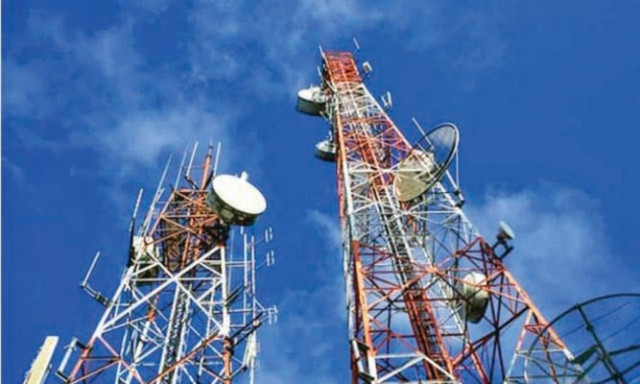Spectrum auction fails to entice telecom players
Companies stay away due to higher price, stringent conditions

The Pakistan Tehreek-e-Insaf (PTI) government faced a major blow in the 2021 spectrum auction as leading telecom players stayed away from participating in the bidding due to a higher price and stringent conditions set by the government.
Only one telecom company, Ufone, a subsidiary of PTCL, participated in the bidding process. The government had set a target of $1 billion by selling additional spectrum to the telecom companies.
Former decision-makers, experts and industry veterans had already hinted that the high base price, continued denomination of spectrum price in US dollar instead of rupee coupled with unrealistic and complex licence conditions could dampen operators’ interest in the auction despite the apparent need for more spectrum to achieve digitalisation and connectivity objectives.
Although the Pakistan Telecommunication Authority (PTA) reportedly conducted the consultation sessions transparently and incorporated some industry inputs into the auction package for prospective bidders, the auction design and the narrow final timelines set for expressions of investment interest seem to be self-defeating in attracting any new entrant as well as existing operators.
The Ministry of Information Technology and Telecom (MoITT) has taken some encouraging initiatives in line with the prime minister’s Digital Pakistan vision, ironically the broader approach to provide internet connection in every household does not reflect in policymaking for the spectrum auction, which was one of the most important milestones to enhance digital inclusion and improve digital infrastructure.
Since the spectrum price and its value in local currency is among the most critical factors, along with ensuring infrastructure rollout, attracting or deterring investment, it was essential to balance these two elements to achieve the more significant policy objectives.
The price denomination of the offered spectrum in US dollar makes the potential investment riskier given the instability of the local currency exchange rate in relation to the dollar.
Owing to rupee devaluation against the dollar over the years, the per MHz spectrum sold for Rs3.11 billion in the 2017 auction, now costs Rs5.12 billion (66% higher) even at the base price before auction.
Read Engro to invest in telecom infrastructure
The exchange risk exposure will continue to be one of the critical factors deterring investments in the spectrum, mainly as the size of the market and spending ability of users stays the same, resulting in a consistently low Average Revenue Per User (ARPU).
“Keeping in view the fact that Pakistan’s mobile industry is one of the most spectrum deprived in the world along with being one of the lowest ARPU market, the government, instead of adopting the revenue maximisation approach by burdening the operators upfront, should have prioritised delivery of affordable and high-quality telecommunication services,” said an expert.
“Especially at a time when local and foreign investors may also be concerned about Afghanistan’s current situation and its potential implications for Pakistan’s economy, PTA was supposed to develop a package enabling sound business cases for foreign sponsors of mobile network operators, who might consider regions with better socioeconomic stability and return on investment,” said an ICT analyst.
According to a GSMA study, inflated prices result in the spectrum going unsold or adversely affecting customer service quality as operators are left with limited funds for network development and up-gradation.
With advanced 4G networks being deployed now and 5G technology on the horizon, both require ever-increasing amounts of spectrum. Those countries that inflate prices are not just damaging their broadband future but they are also holding back their entire digital economies.
Governments and regulators must fully appreciate their ability to maximise – or thwart – their digital futures through spectrum pricing, experts said.
Although all the potential bidders have both the cellular service and NGMS licences, the additional spectrum comes with unnecessary additional service licences that increase the cost of compliance with different obligations in different licences and complicate business investment cases.
Moreover, new obligations to be included in the new licences would require around triple the amount of capital investment over and above the spectrum price in the first three to six years.
When spectrum-intensive data usage showing exponential growth of 272% from 1,207 petabytes in 2017-18 to 4,498 petabytes in FY20, the government should have concentrated on removing all roadblocks against rolling out available spectrum to increase coverage and ensuring service quality.
Published in The Express Tribune, September 10th, 2021.
Like Business on Facebook, follow @TribuneBiz on Twitter to stay informed and join in the conversation.



















COMMENTS
Comments are moderated and generally will be posted if they are on-topic and not abusive.
For more information, please see our Comments FAQ